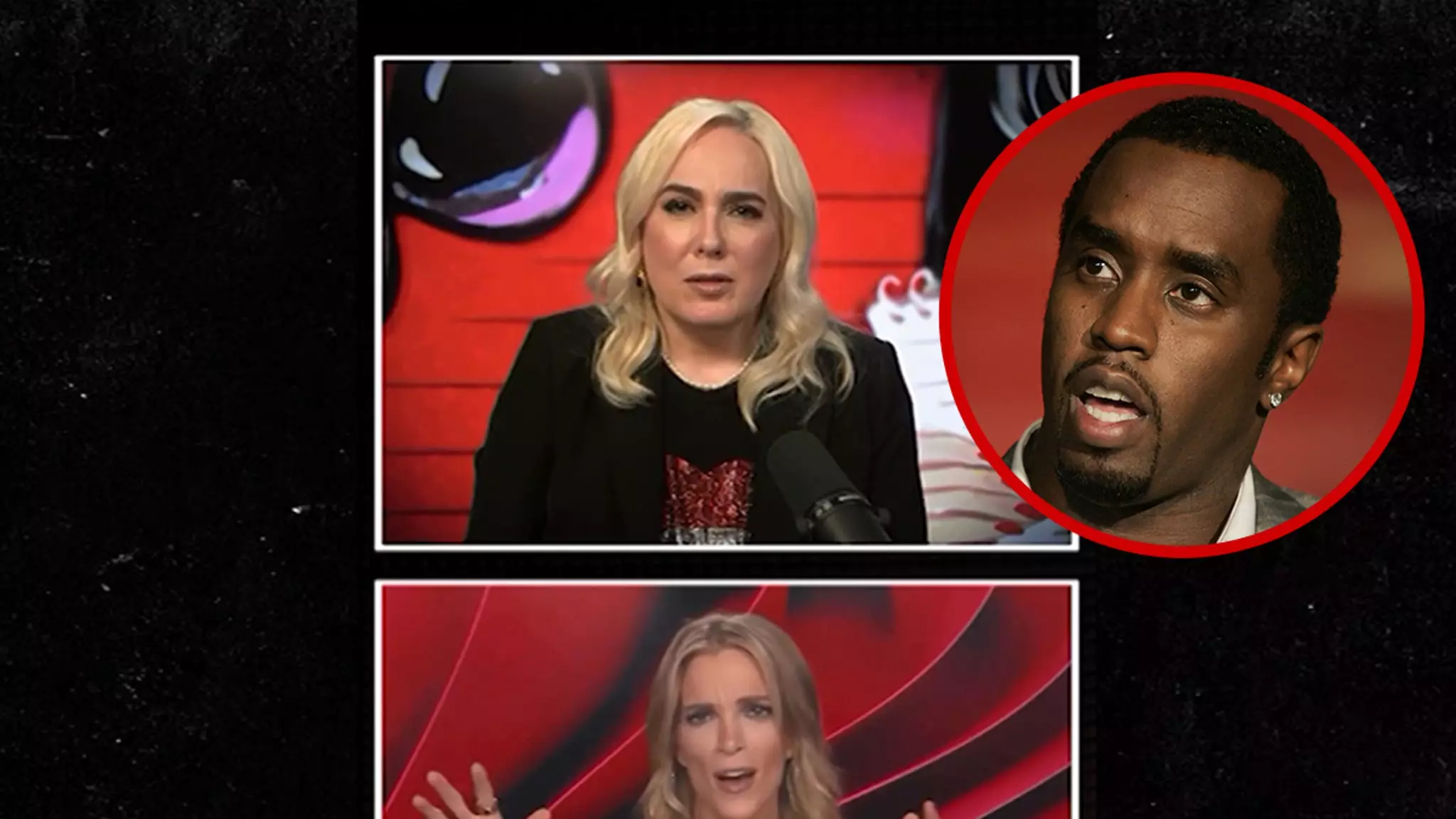In the realm of celebrity gossip, the Met Gala tends to be a breeding ground for outrageous stories. Recently, former Fox News anchor Megyn Kelly reignited interest with her peculiar anecdote about a supposed encounter with Sean “Diddy” Combs during the lavish event. According to Kelly, her memorable experience unfolded in the women’s restroom, revealing a sight she claimed was akin to a fever dream: Diddy engaging in what she described as “dry humping” with a Kardashian. The gravity of such an assertion raises eyebrows and invites deeper scrutiny into the responsibilities of public figures when sharing candid moments.
Kelly’s retelling diverges into a territory laced with implications. By stating that Diddy lacked respect for women’s privacy, she not only sparks intrigue but also wades into a complex dialogue surrounding the treatment of women in the entertainment industry. Yet one can’t help but ponder: is a restroom really the place for such an exploration of celebrity behaviors? Instead of contributing to a constructive conversation about the alleged patriarchal dynamics at play, does this encounter merely serve sensationalism?
Context of Diddy’s Legal Woes
While Kelly’s sensational narrative unfolds, Diddy is currently embroiled in a legal tempest. He faces multiple federal charges, compounded by the testimony of his ex-partner Cassie, who has come forward with some alarming allegations of abusive behavior. Amid such serious accusations, Kelly’s story could be seen as an attempt to entertain rather than inform. The juxtaposition of Diddy’s potential criminal actions with tales of bathroom revelry distracts from pressing issues—one cannot ignore the serious nature of the allegations that have now entered the court of public opinion.
As Kelly shares her restroom anecdote, it’s crucial to question the timing and motivation behind it. Is it merely coincidental that her claims come amid Diddy’s legal troubles, or is it a calculated move to harness collective intrigue? Moreover, it invites speculation on how certain narratives about celebrities are manipulated to suit various agendas, capturing public attention while overshadowing the gravity of genuine issues at hand.
The Kardashian Factor
The Kardashians, a family oft-enshrined in the media spotlight, find themselves frequently entwined in the drama surrounding their peers. Kelly’s decision not to disclose which Kardashian was allegedly involved in this restroom escapade only serves to fuel further speculation and gossip. The source denying Kelly’s claims underscores the potential pitfalls of celebrity gossip culture—the rapid spread of narratives that can irreparably damage reputations without substantiated evidence.
By positioning the Kardashians in the narrative, there’s an unspoken reinforcement of their status as cultural lightning rods. Their very presence incites discussions about fame, privilege, and the moral implications of their lifestyle choices. However, caring about the Kardashians can sometimes distract from the real stories worth exploring, especially when dark allegations swirl around figures like Diddy.
Overall, as much as Megyn Kelly’s story captivates, it serves as a reminder of the line between entertainment and the dissemination of potentially harmful narratives. Amid sensationalized anecdotes lies the responsibility to engage meaningfully with the realities that often underpin the stories we consume.

